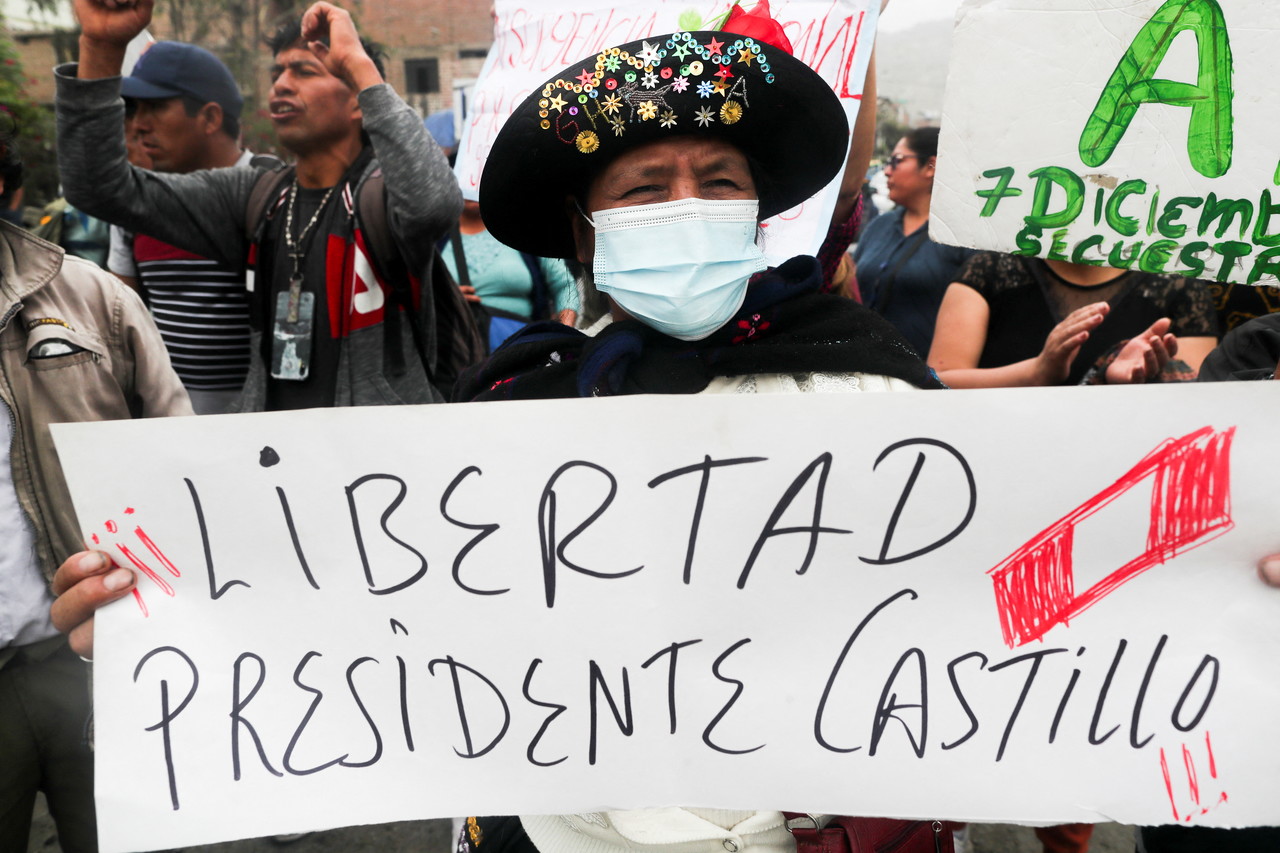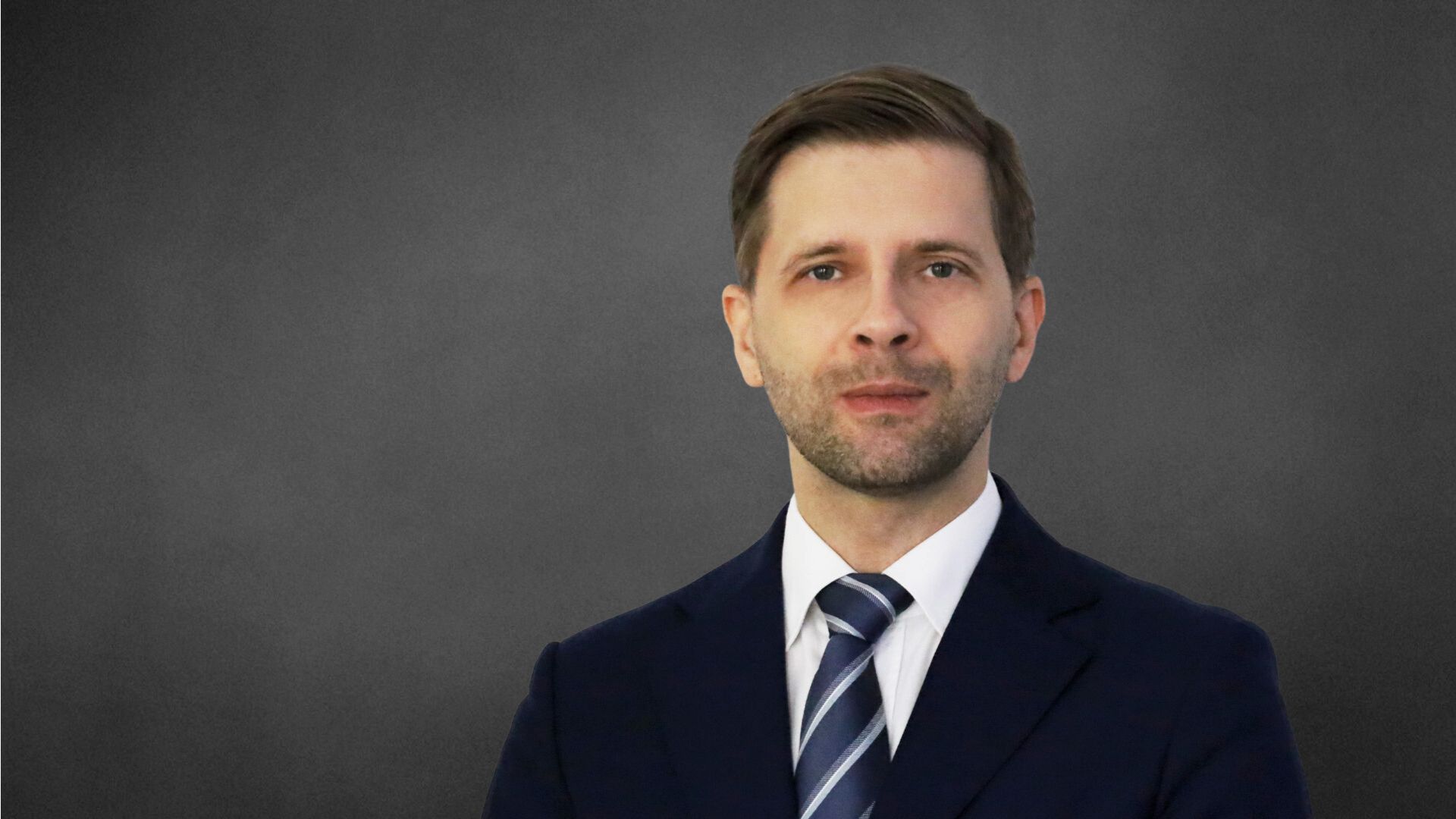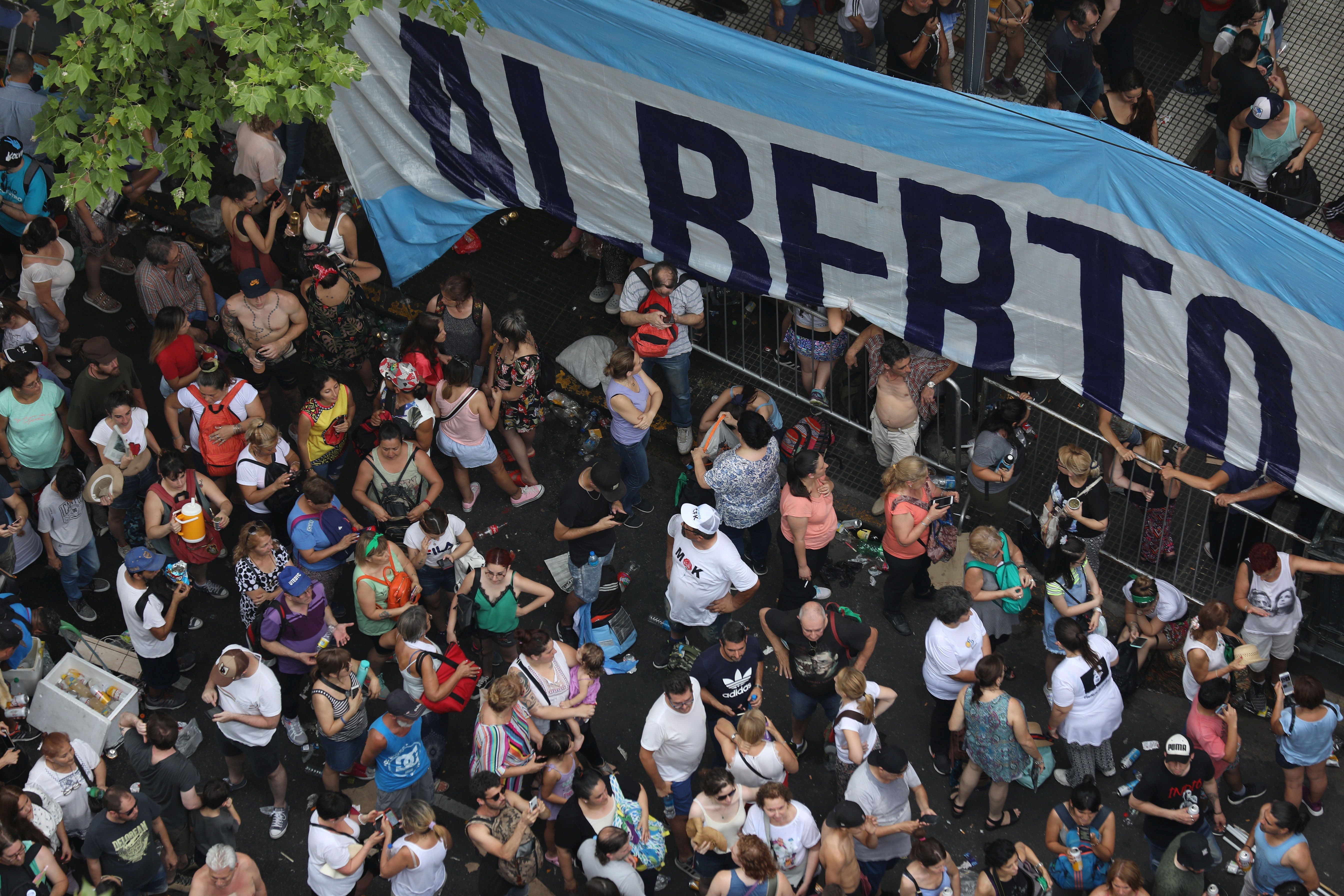Peru Enters a New Stage in Its Political Crisis
On 7 December, Peruvian President Pedro Castillo was arrested following his unsuccessful attempt at autogolpe—an unconstitutional takeover of full power by an incumbent head of state. The parliament, immediately voted to remove him and appointed Vice President Dina Boluarte to the highest office, which sparked violent riots by Castillo’s supporters. Bringing general elections forward by two years, to April 2024, is aimed to overcome this new stage of the political crisis that has afflicted Peru in the last few years. Foreign reactions of support for the new government prevailed, but tensions are visible in Peru’s relations with supporters of Castillo, including Mexico.
 SEBASTIAN CASTANEDA / Reuters / Forum
SEBASTIAN CASTANEDA / Reuters / Forum
Boluarte is the sixth head of state of Peru since the election of Pedro Pablo Kuczynski in 2016. This period also has seen several changes in the composition of governments—although the president heads them, he or she nominates the prime minister and, at the latter’s request, all ministers. The frequent changes of leader, whether through resignation, sacking by the unicameral 130-member Congress, or for other reasons, is the main manifestation of Peru’s long-term political instability. The growing fragmentation of parties, presidents, and their governments’ lack of a parliamentary majority, as well as corruption scandals involving various authorities, contributed to the crisis. Kuczynski was the first Peruvian leader in several years who did not complete his five-year term. He resigned in March 2018, pre-empting a vote by Congress to remove him amid corruption allegations. Several of Kuczynski’s predecessors were charged or sentenced on similar grounds. This also was the case of his immediate successor, Martín Vizcarra, who dissolved parliament in September 2019 but was dismissed by the next Congress in November 2020.
Recent years also have seen Peruvians losing trust in politicians and democratic institutions. According to a Barómetro de Americas poll, in 2021 only a third of the population trusted elections, 21% was satisfied with democracy (only Haiti had a lower result in the region), and nearly 90% considered the majority of politicians corrupt. This discontent contributed to the unexpected victory of Pedro Castillo—a former teacher and union leader—in the 2021 presidential election. As a candidate of the left-wing Free Peru party, he declared he would reform the constitution and increase spending on education, among other promises.
Context and Political Consequences of Castillo’s Removal
Since taking office in July 2021, Castillo has been in constant conflict with the Congress’ right-wing opposition majority, which had accused him of, for example, incompetence and nepotism. He changed prime ministers several times and saw nearly 80 changes of ministers because of their controversial statements and for other reasons. The president and his family were subject to several criminal proceedings—the prosecutor’s office accused Castillo of, among others, leading a criminal group and influence peddling. According to polls by the Institute of Peruvian Studies, from July 2021 to November 2022, support for Castillo fell from 38% to 33%, while for Congress it fell from about 20% to 10%.
The parliament voted to remove the president in November 2021 and in March 2022 by invoking the constitutional criterion of a leader with “moral incapacity”, but the motion did not garner the required majority of 87 votes. Castillo considered dissolving Congress, but the constitution allows the president to do it only if the parliament rejects a vote of confidence in the government twice. At the end of November, however, the president suggested that he would nevertheless try to dissolve Congress. Together with his associates, he probed the army’s top command as to whether they would support him in case he acted contrary to the constitution. In protest, the defence minister resigned on 4 December. His successor tried to persuade the then commander of the armed forces to step down at Castillo’s request.
Parliament scheduled a third attempt to remove the president for 7 December. Although achieving the required majority was uncertain that day, a few hours before the vote, Castillo unexpectedly announced in a televised address that he was dissolving Congress, installing a temporary “emergency government” with the right to rule by decree, and that he would convene a constituent assembly and reorganise the judiciary branch. In response, successive ministers resigned. The Constitutional Court, the police, and the army issued statements in defence of the constitutional order. Failing in his attempt, Castillo tried to reach the Mexican embassy to claim political asylum, but was detained on charges of rebellion and conspiracy. Congress accelerated the vote on the president’s removal, with 106 votes in favour of the motion.
Boluarte was sworn in immediately as the new president in accordance with the constitutional succession order. In 2021, she was elected as Castillo’s first vice president representing Free Peru, but she quickly distanced herself from the party and was even expelled from it last January. Boluarte’s announcement that she would complete the presidential term expiring in 2026 (as per the constitution) sparked violent riots, including countrywide blockades of roads and airports. The protesters are demanding Castillo’s release (according to polls, 44% of the public supported the autogolpe). On 12 December, he issued a statement from his detention cell calling Boluarte a usurper, accusing the opposition of conspiracy, and calling for further protests. Two days later, the court accepted the prosecutor’s request for Castillo’s pre-trial detention for 18 months. On the same day, the government declared a state of emergency for 30 days. At the same time, accusations of police brutality have intensified—to date, more than 20 people have been killed and several hundred injured in the protests. On 20 December, Congress approved the Boluarte-nominated government’s motion to schedule early elections for April 2024, but an additional vote during the next legislative session in March is required to approve this decision.
International Reactions
Calls to respect Peru’s constitutional order were included in most foreign positions, including a statement by EU diplomacy. Notable, however, was the divergence in the reactions of left-wing leaders in the region. Brazil’s president-elect, Luiz Inácio Lula da Silva, issued a statement on 7 December that argued Castillo’s dismissal and Boluarte’s appointment was constitutional. In Chile, the government of President Gabriel Boric condemned the autogolpe, although his foreign minister later declared that she did not consider Castillo a coup plotter. The presidents of Colombia, Gustavo Petro, and of Mexico, Andrés Manuel López Obrador, sided with Castillo, considering him the victim of a conspiracy.
Mexico took active efforts to grant Castillo political asylum, and on 9 December the Boluarte-nominated government accused Mexican authorities of interfering in the internal affairs and making statements contrary to the facts. Three days later, the governments of Argentina, Bolivia, Colombia, and Mexico issued a joint statement calling for the results of Peru’s 2021 presidential election to be respected and recognising Castillo as the legitimate president. They argued that he is the victim of “anti-democratic harassment” but did not address his autogolpe attempt. The Boluarte-nominated government summoned its ambassadors in the four countries for consultations, and a few days later issued a note of protest to Colombia against its president’s statements. Castillo’s family, including his wife, who is the subject of corruption charges, was granted political asylum at the Mexican embassy in Lima on 20 December. On the same day, the Peruvian authorities declared the Mexican ambassador persona non grata, explaining that it was in response to López Obrador’s statements.
The regional tensions have complicated cooperation within the Pacific Alliance, an important economic integration bloc that includes Peru, Chile, Colombia, and Mexico. The Mexican authorities cancelled their handover of the rotating presidency of the organisation to Peru, scheduled for 14 December in Lima.
Prospects
Bringing forward the elections may not be enough to ease tensions, as Castillo still enjoys relatively large public support. Congress can effectively undermine Boluarte’s initiatives and even remove her, which would deepen the political crisis in Peru. Criminal proceedings against Castillo and his accomplices for organising the autogolpe will be another source of tensions.
Divergence within the Pacific Alliance will be a challenge in Peru’s external relations. Although some governments in the region, particularly Mexico, emphasise their commitment to non-interference in the internal affairs of other countries, their position on Castillo’s actions shows selective observance of this principle. Such an approach may de facto result in consenting to violations of the law by other leaders who are ideologically close and hinder efforts to restore the democratic order in countries ruled by authoritarian regimes, for example in Venezuela or Nicaragua.
Stabilisation of the political situation in Peru also will depend on the transparency of this process (including, for example, potential political reforms) and on foreign partners, including the EU, endorsing its legitimacy. The European Union’s support for the current Peruvian authorities could serve to strengthen democracy and the rule of law in the region. This is particularly important in the context of the EU’s ongoing plans to revive relations with its Latin American and Caribbean partners. The first summit of both regions since 2015 is scheduled in the second half of 2023 in Brussels.





_sm.jpg)